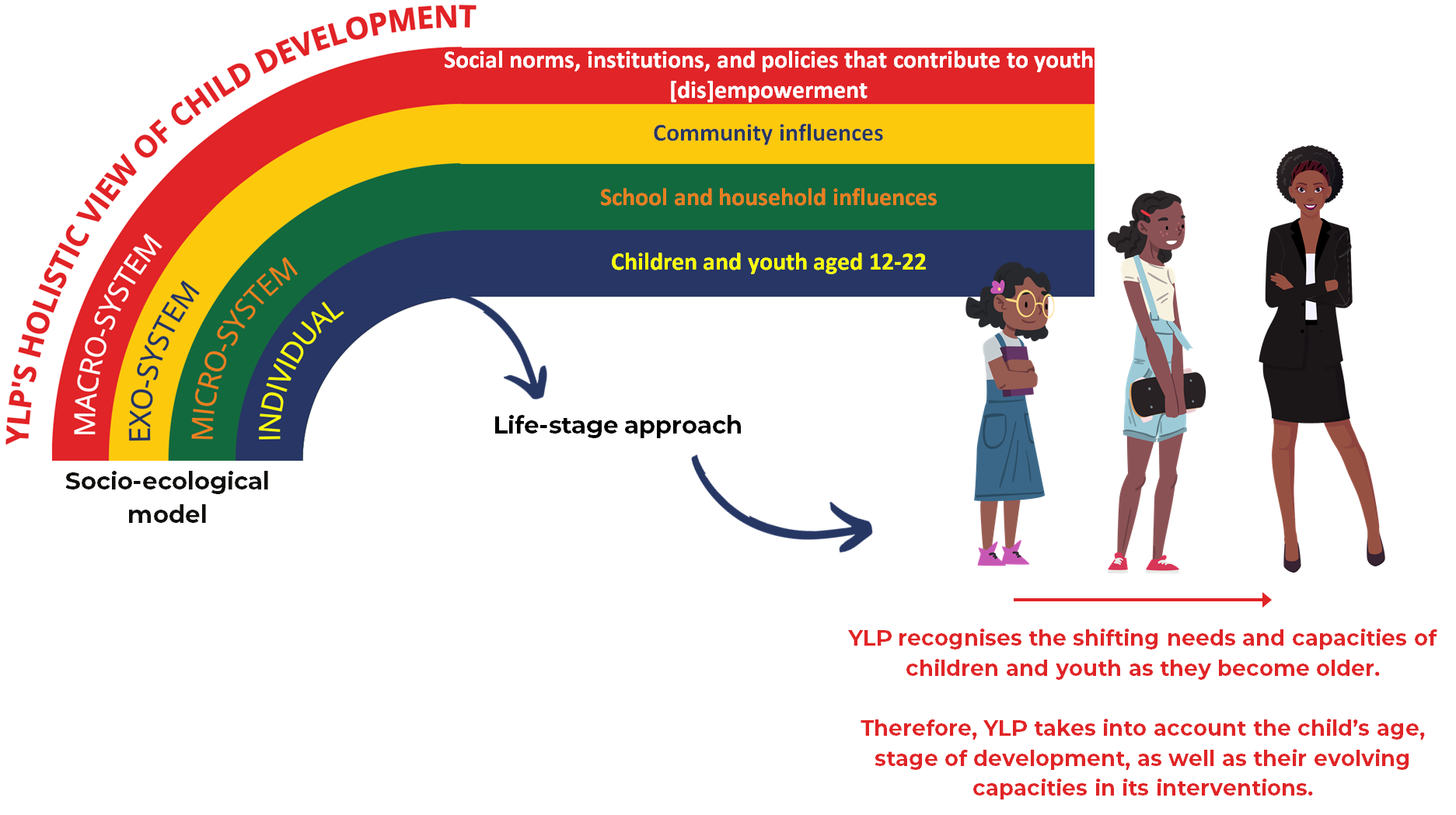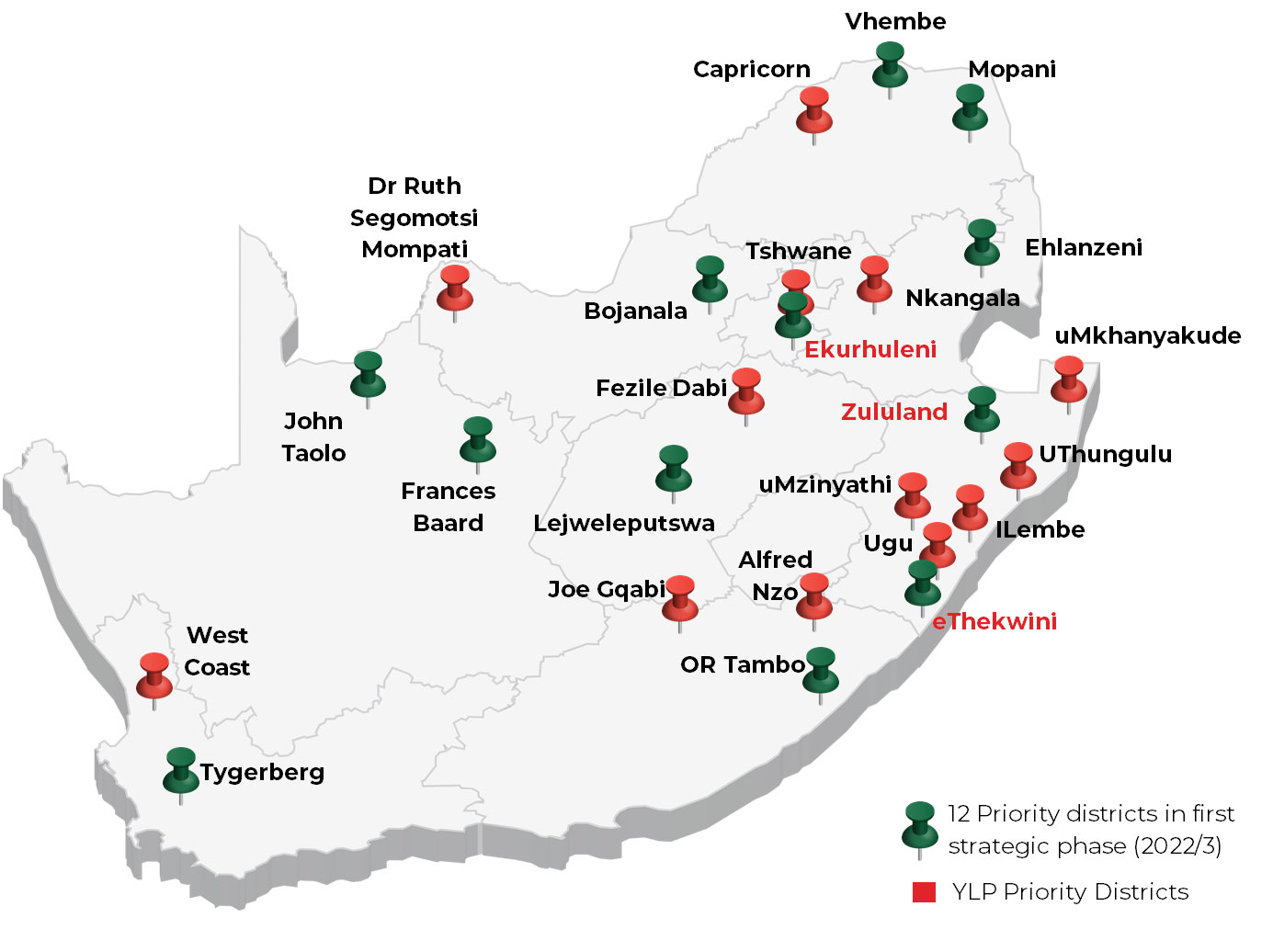🎓✨ “It is not beyond our power to create a world in which all children have access to a good education.” – Nelson Mandela
💡 Education is a RIGHT, not a privilege!
On 6 April 2025, at the #AfricaChildrensSummitS2025, children will to take centre stage yet again and imagine future education – what will work, what won't, and how they want to learn. Leaders, policymakers, educators, parents, and civil organisations focused on #ChildEducation must take notes 🌍👂
Every child deserves quality education. No child must be left behind. Let’s enable them to lead the way in making it happen! 🚀
📅 4-7 April 2025
📍 Parktown, Johannesburg
Department of Social Development UNICEF South Africa Save the Children South Africa Official Brand South Africa
#ACS2025 #SeenHeardAndEngaged #ForChildrenByChildren #FutureOfChildrensVoices #FutureLeaders #3DaysToGo
… See MoreSee Less
Q: "What is your message to all key stakeholders about the future of the #AfricaChildrensSummit?"
Dr Linda Ncube-Nkomo – CEO: NMCF: "The summit cannot afford to die. Platforms where the children on the continent get together and talk about issues that affect them cannot afford to die. And so, the the expectation, our ask – my ask – is that we make this a living Summit, that when children go back home, their voices are not muted. When children go back to the schools and the communities that they are coming from – their voices are not muted. [We must ensure] that child participation – child advocacy – becomes part of how children are being nurtured so that they are able to express themselves, that they are able to stand up for themselves, and that they help us navigate what Africa of 2060 should look like by listening to the voices of its young people."
📅 4-7 April 2025 | 📍 Parktown, Johannesburg
Save the Children South Africa UNICEF South Africa Department of Social Development Official Brand South Africa MtotoNews Watoto
#ACS2025 #SeenHeardAndEngaged #ForChildrenByChildren #FutureOfChildrensVoices #FutureLeaders
… See MoreSee Less
As we count down to the Africa Children’s Summit 2025, we extend our heartfelt gratitude to the partners who have collaborated with us to make this Summit a reality. Your support drives our mission to empower young voices across Africa.
A special thank you to:
South African Government Department of Social Development Official Brand South Africa UNICEF South Africa Save the Children South Africa African Union African Committee of Experts on the Rights and Welfare of the Child African Child Policy Forum Department of Women, Youth and Persons with Disabilities Department of International Relations and Cooperation, SA Department of Home Affairs United Nations Committee on the Rights of the Child
Many more partners are still to be acknowledged, so keep your digital finger on our dial 😊
Join us in celebrating this milestone and get ready for #AfricaChildrensSummit2025!
📅 4–7 April 2025
📍 Parktown, Johannesburg
#ACS2025 #SeenHeardAndEngaged #ForChildrenByChildren #FutureOfChildrensVoices #FutureLeader #4DaysTogo
… See MoreSee Less
🛡️ “We understand and promote the notion that while children need to be guided, they also have an entrenched right to be whatever they want to be.” – Nelson Mandela
💡 The second part of #ACS2025 programme on the 5th of April is dedicated to CHILD RIGHTS!
Children are not just the future—they are the present! Their rights to education, protection, and self-determination must be upheld and defended. This is their platform, their time to demand action! 🚀
📅 4-7 April 2025
📍 Parktown, Johannesburg
Department of Social Development UNICEF South Africa Save the Children South Africa Official Brand South Africa
💬 What does child rights mean to you? Let’s get talking! ⬇️
#AfricaChildrensSummit2025 #ACS2025 #SeenHeardAndEngaged #ForChildrenByChildren #FutureOfChildrensVoices #FutureLeaders #4DaysToGo
… See MoreSee Less
Q: "How can the whole continent participate in the #AfricaChildrensSummit2025?"
Dr Linda Ncube-Nkomo – CEO: NMCF: "The entire continent can participate by amplifying awareness of the summit and providing resources for children who cannot physically attend, including data [and devices for online access]. Some young people outside South Africa are still trying to mobilise financial resources to travel. Airlines such as Kenya Airways and South African Airways have partnered with us to offer discounted flights for children, and we are incredibly thankful for their support. We encourage more partners to come on board, sponsor a child, and give them the opportunity to have their voices heard at the Africa Children's Summit 2025."
📅 4-7 April 2025 | 📍 Parktown, Johannesburg
Save the Children South Africa UNICEF South Africa Official Brand South Africa Department of Social Development
#ACS2025 #SeenHeardAndEngaged #ForChildrenByChildren #FutureOfChildrensVoices #FutureLeaders
… See MoreSee Less
🌟 “Our children are the rock on which our future will be built, our greatest asset as a nation.” – Nelson Mandela
🔥 The first part of #AfricaChildrensSummit2025 programme on the 5th of April is all about the Future of Children's Voices!
The Summit 2025 will be dominated by powerful conversations by children, for children! Their voices will shape policies, inspire change, and redefine the future. This is not just a discussion; it’s a movement! 🚀
📅 4–7 April 2025
📍 Parktown, Johannesburg
💬 What do YOU think the future of children's voices should look like? Drop your thoughts in the comments! ⬇️
Gauteng Department of Social Development UNICEF South Africa Save the Children South Africa Official Brand South Africa
#AfricaChildrensSummit2025 #ACS2025 #SeenHeardAndEngaged #ForChildrenByChildren #FutureOfChildrensVoices #FutureLeaders #4DaysToGo
… See MoreSee Less
Q: "Who are the partners working with the Nelson Mandela Children’s Fund for the successful delivery of the #AfricaChildrensSummit2025?"
Dr Linda Ncube-Nkomo – CEO: NMCF: "Dr Linda Ncube-Nkomo – CEO: NMCF: The 2025 summit is being co-hosted with the Government of South Africa, with the National Department of Social Development playing a critical role in ensuring government involvement. Since coming into South Africa children will be travelling accompanied by caregivers and chaperones and not their parents, it was important for the government to facilitate their entry into the country, and support the visa processes at South African embassies and missions [across the continent].
We would not be able to host this summit without the support of partners such as Tiger Brands, Nedbank, Hi-Tec, and Brand South Africa, who have provided resources to make this event possible. We are deeply grateful for their contributions and hope that more partners will come on board to help fulfil the responsibility given to us by the children."
📅 4-7 April 2025 | 📍 Parktown, Johannesburg
Save the Children South Africa UNICEF South Africa Official Brand South Africa Department of Social Development
#ACS2025 #SeenHeardAndEngaged #ForChildrenByChildren #FutureOfChildrensVoices #FutureLeaders
… See MoreSee Less
Q: “Why is the Africa Children’s Summit 2025 important for the continent’s future?”
Dr Linda Ncube-Nkomo – CEO: NMCF: “The children are not just the present. They are the future. And a lot of times, we’re talking and making decisions for children, without hearing their voices, without hearing their lived experiences. And if you look at Africa as a continent, we are a very youthful continent. And so, it is important that the voices of the people for whom we are making policies, for whom we are making investments, should inform the direction that the continent should be taking. Otherwise, it’s middle-aged people and older people like ourselves who are making decisions, but we do not know what it is like to be a child, to be a young person in 2025. And it’s important that we get those insights from them… the potential beneficiaries of these programmes – to know what it is that they are wanting to have as a continent that’s handed over to them as the next leadership of this continent.”
📅 4-7 April 2025 | 📍 Parktown, Johannesburg
Save the Children South Africa UNICEF South Africa Department of Social Development Official Brand South Africa MtotoNews Watoto
#AfricaChildrensSummit2025 #ACS2025 #SeenHeardAndEngaged #ForChildrenByChildren #FutureOfChildrensVoices #FutureLeaders
… See MoreSee Less












